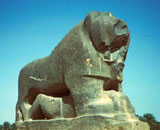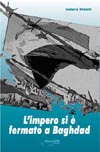
Afghanistan War: Bulldozing through Kandahar
Using explosives and bulldozers, the US military has leveled hundreds of homes and trees.
November 11, 2010 - The U.S. military has destroyed hundreds of Afghan civilian homes, farm houses, walls, trees and plowed through fields and buildings using explosives and bulldozers in war-torn Zhari district, a practice that has begun to anger Afghan villagers. The much anticipated third phase of the Kandahar campaign, called Operation Dragon Strike, has U.S. troops from the 2nd brigade, 101st Airborne Division pushing into a dangerous swath of once-Taliban dominated territory from Highway 1 to the Arghandab River. But it has come at much material cost to the Afghans, who complain that the troops are destroying their property, leaving some homeless and blocking their irrigation canals —potentially derailing the all-important counterinsurgency strategy that aims to win the hearts and minds of regular Afghans...
[71749]
|
Uruknet on Alexa
>
:: Segnala Uruknet agli amici. Clicka qui.
:: Invite your friends to Uruknet. Click here.

:: Segnalaci un articolo
:: Tell us of an article
|
|
Afghanistan War: Bulldozing through Kandahar
Using explosives and bulldozers, the US military has leveled hundreds of homes and trees.
Ben Gilbert
 |
Army engineers blow up a grape hut near a newly established U.S. base near Sia Choy, Kandahar province, Oct. 22, 2010. (Ben Gilbert/GlobalPost) Click to enlarge photo
GlobalPost , November 11, 2010
FORWARD OPERATING BASE WILSON, Afghanistan — The U.S. military has destroyed hundreds of Afghan civilian homes, farm houses, walls, trees and plowed through fields and buildings using explosives and bulldozers in war-torn Zhari district, a practice that has begun to anger Afghan villagers.
The much anticipated third phase of the Kandahar campaign, called Operation Dragon Strike, has U.S. troops from the 2nd brigade, 101st Airborne Division pushing into a dangerous swath of once-Taliban dominated territory from Highway 1 to the Arghandab River.
But it has come at much material cost to the Afghans, who complain that the troops are destroying their property, leaving some homeless and blocking their irrigation canals —potentially derailing the all-important counterinsurgency strategy that aims to win the hearts and minds of regular Afghans.
"You bulldozed some of my trees, they’re blocking the canal, now we can’t get water to the orchard," Haji Jilal, a frail, weathered Afghan farmer with a white beard said to one of the U.S. military’s Afghan interpreters on a recent patrol here.
Military officials said the majority of the buildings blown up, and fields and walls plowed through, have been either booby-trapped or used by the Taliban as hideouts and shooting positions.
They also argue the destruction is actually a positive development — it forces Zhari residents to go to their local government center for compensation. U.S. Army commanders see this as a way to kick-start progress toward the final goal of the Kandahar campaign: connect the people of Zhari district to the Afghan government.
Zhari has acquired an almost mythical status among U.S.-led coalition troops here. Its reputation as a Taliban stronghold has led soldiers to call it the "Heart of Darkness."
Narrow dirt roads in this district skirt rows of waist high mud grape trellises. Mud brick buildings, known as "grape huts," with walls as thick as medieval castles, serve as perfect ambush positions for Taliban gunmen and IED triggermen. The Taliban leader, Mullah Mohammad Omar, hails from a town nearby, called Sangsar. Few farmers here have ever seen a solider from the U.S.-led coalition during the war, which is now in its 10th year.
This summer, soldiers who tried to venture even close to these areas were pinned down by Taliban ambushes and heavy machine guns.
Thirty American troops from the 2nd Brigade of the 101st Airborne have died since the unit arrived to this violent district in June — most from IED detonations. Five American troops lost their lives in the last two weeks.
So during their push into Zhari, troops from 2nd brigade have spared no expense, or explosives.
"I’ve never seen so many explosives being used," said 1st Sgt. Larry Breland, a 17-year veteran of the Army with two tours in Iraq under his belt. He and his troops paused during a patrol among hedges of dusty grape vines as Army engineers blew up yet another compound they suspected the Taliban used as a medical station.
In an effort to clear paths heavily mined by the Taliban, soldiers employed a weapon called a MICLIC, an acronym for Mine Clearing Line Charge. In one thunderous, ground-shaking boom, the weapon clears a path 300 feet long and wide enough for a tank. Breland said his company commander, Cpt. Mike Gold, had used 16 MICLICs in one day.
"When Cpt. Gold clears a road he clears a road," he said. "It’s clear."
The destruction can appear apocalyptic. A school had been reduced to flattened rubble by an air strike — American soldiers said it was a Taliban fighting position. Across the road, another pulverized building spilled its rusting rebar and concrete guts into the dirt. A kilometer south, MICLICs had torn a path along the edge of a village, where burnt trees and battered buildings hugged the edge of the cleared corridor where U.S. troops walked — very deliberately — in the tracks of a bulldozer.
Gold said that in order to clear a safe path for the troops, there was no choice but to destroy Afghan property.
"I will never bulldoze a house anybody lives in," Gold said he told one nearby village elder. "We’re not running you out of your homes."
But all the bulldozing and bombs have begun to draw the ire of Afghan villagers whose farms, buildings and trees the Americans are destroying.
To pay for the damage, the U.S. military here is giving Afghans compensation cards for the damaged property. Villagers take the cards to the Afghan government's district center at Camp Wilson, the main American base here. U.S. commanders said the system forces locals to work with their government — which is the overall goal of the operation.
"The key thing is that they have to go to district center to get compensation," said Cpt. Ryan Kort, 1-75’s Alpha Troop commander. "It’s not the U.S. giving them compensation; it’s the Afghan government and district governor signing off on compensation."
But there isn't much of a staff at the Zhari district office other than the district governor. So, the Civil Affairs team from the 2nd brigade is based in a tiny room just opposite the governor’s office at the Zhari district center. Their team is split into two groups of four soldiers and officers, who together field an average of 120 claims a week.
"There’s kind of a backlog right now," said Maj. Todd Clark, a civil affairs officer for 2nd Brigade who was handling claims at the Zhari district center last week. "Typically we only do it once a week."
As Afghans come in to begin the process, their names, photos and fingerprints are taken before the civil affairs team begins working out the basics of the compensation package. Clark has a list of payments for commonly damaged items: a mud built house is worth about $8,000. For a pomegranate tree, villagers get $175. One grape vine is $22. He said the average total claim these days is about $2,500.
One structure the Americans aren’t paying for is grape huts. Clark said they’re pairing up Afghan farmers with a USAID contractor, called AVIPA, whose engineers have come up with a new design for grape huts, and will rebuild them for free.
"It has wider gaps in it, it’s faster to build, a bit less expensive, and it’s not so much of a fort that it can be used against us," Clark said.
Although the Afghan district governor must sign off on any compensation before the Afghan claimant sees the Americans, Afghans are almost guaranteed to receive compensation with a claims card issued by an American soldier in the field.
And it’s the Americans who are doing most of the work. They check documents and, most importantly, hand out the cash.
But because few Afghans have property deeds in this region, they have to get verification of their ownership from neighbors or village elders, providing an opening for corruption.
Clark said there aren’t a whole lot of other options.
"It’s kind of all we have to go by," he said. "Everything in this culture goes through the village elders — so we try to follow that tradition."
On a recent morning at the district center, a distinguished looking elderly Afghan man named Haji Ratmutullah from Mullah Omar’s hometown of Sangsar, said he’d come to check on the progress of 110 compounds damaged or destroyed in the town.
He said some people were living outside because their houses had been destroyed. Others had fled to Kandahar City. He said the situation was still "very dangerous."
"The Taliban can’t stand and fight face to face — so they’re planting the mines and IEDs and innocent people are getting injured," he said. "But we are angry with the government too, because they haven’t paid us back the cost our buildings."
"So we are unhappy from both sides — the Taliban and government," he added.
|
|
:: Article nr. 71749 sent on 11-nov-2010 17:40 ECT
www.uruknet.info?p=71749
:: The views expressed in this article are the sole responsibility of the author and do not necessarily reflect those of this website.
The section for the comments of our readers has been closed, because of many out-of-topics.
Now you can post your own comments into our Facebook page: www.facebook.com/uruknet


[ Printable version
] | [ Send it to a friend ]
[ Contatto/Contact ] | [ Home Page ] | [Tutte le notizie/All news ]
|
|

Uruknet on Twitter

::
RSS updated to 2.0

:: English
:: Italiano

::
Uruknet for your mobile phone:
www.uruknet.mobi
Uruknet on Facebook

The newsletter archive
:: All events
|

















